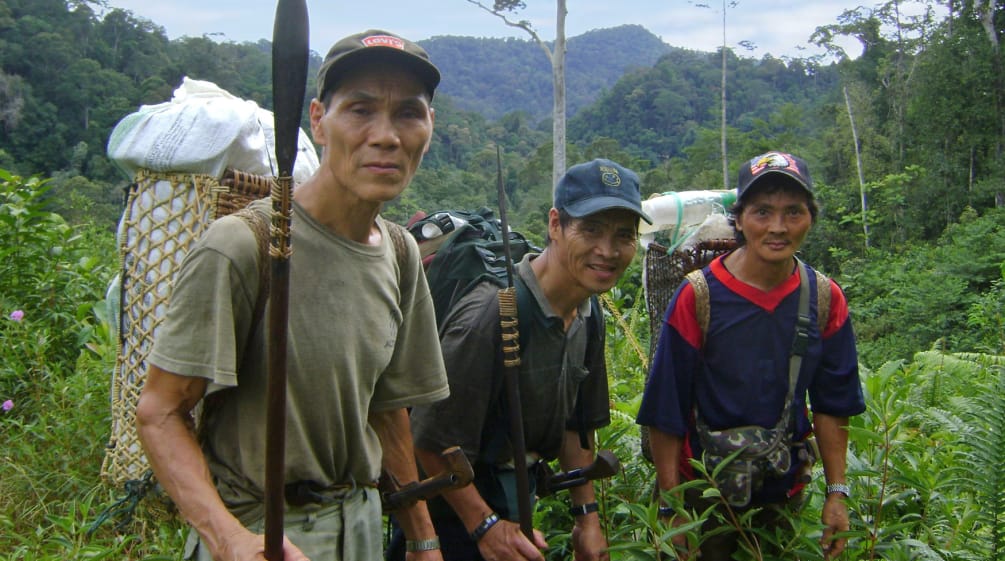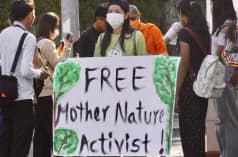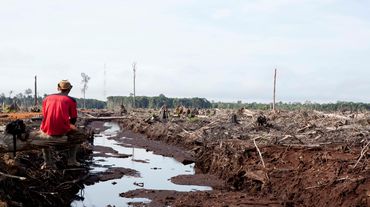Sarawak: Palm oil project off the table for good
 The indigenous Penan live as nomads in and from the forest (© Bruno Manser Fonds)
The indigenous Penan live as nomads in and from the forest (© Bruno Manser Fonds)
Oct 17, 2022
The threat to Gunung Mulu National Park in Malaysia from the palm oil industry has finally been averted – a great success for the indigenous peoples living there. After years of protests, the Sarawak state government has now revoked the concession for the plantation.
“I hope that we can stop many more such cases of encroachment in order to preserve a healthy environment,” says Matek Geram from the indigenous organization SADIA, a close partner of Rainforest Rescue: “The forest is our life and the life of the indigenous peoples. We intend to do everything we can to save our forests for future generations.”
A key element to the success was efforts to map the ancestral land of the indigenous people, in which Matek played a key role. Much of his work revolves around training villagers in the skills needed to formally stake out their territory and educating them on their rights. Matek’s work is funded by donations to Rainforest Rescue.
Mapping work was crucial in the struggle because the 4,400-hectare palm oil concession not only bordered Gunung Mulu National Park, the only UNESCO World Heritage Site in Sarawak, it also overlapped indigenous territories.
“The Penan are the protectors of the forests and are grateful that the plantation development plan is now history,” said Komeok Joe, head of the Penan organization Keruan. The Berawan and Tering peoples also saw their livelihoods and way of life endangered by the plantation plans.
This case shows that determined efforts of activists on the ground and international support are a powerful combination: In February 2019, Rainforest Rescue and partners launched a petition drawing attention to the planned oil palm plantations, which was signed by 236,858 people.
While the government has not issued an official statement on why the concession was revoked, community leaders say that the company had already begun logging the concession area without a permit.
With the plantation project dead at last, the forest is now safe.











